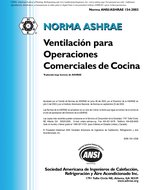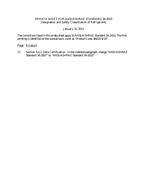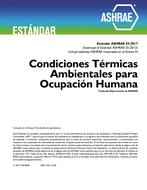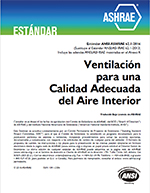Description
According to published statistical data, most TB contamination occurs from unknown and unsuspected TB carriers. It can be found in many areas of a health care facility where, based on the building code requirements, the air is not exhausted to the outside but recirculated to other areas of the facility. Although any system exhausting instead of recirculating the air greatly minimizes the risk of contamination, all-exhaust systems are not used because of their increased energy consumption. As an alternative method, recirculated air is HEPA filtered. To assess the economic impact of these systems, a life-cycle cost analysis is performed for a health care facility using five alternatives, recirculation, HEPA filtration, or 100% exhaust applied to the waiting rooms and HEPA filtration and 100% exhaust applied to the entire building, for three locations: Los Angeles, New York, and Atlanta. The results show that the HEPA filtration system costs more than the 100% exhaust system, but the supplementary annual costs and life-cycle costs of any of the alternatives studied versus using the recirculation system are insignificant if compared to the cost of medical treatment for one TB patient–approximately $100,000.
Units: I-P
Citation: Symposium, ASHRAE Transactions, vol. 106, pt. 2
Product Details
- Published:
- 2000
- Number of Pages:
- 9
- File Size:
- 1 file , 2.1 MB
- Product Code(s):
- D-7267




